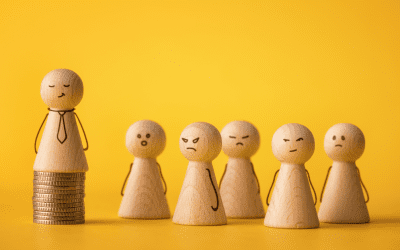There’s been a lot of talk and hand-wringing over Generation Z (those born between 1997 and 2012), entering the workforce. Forbes had an article out in May about the ways young workers’ expectations are already changing the workplace. Among other things, Gen Z is the most diverse generation, and they want employers who are aligned with their values.
Older workers have mixed reactions to these changes. Some people welcome Gen Z, while others say they’re entitled. (But every generation since the Greatest Generation has been told by their elders that they’re entitled.)
But Gen Z will make up a quarter of the workforce by 2025 (i.e., in 4 years), so we need to start talking now about what they’re bringing to the table.
I myself straddle the Gen Z – Millennial line. I’m a Millennial, but if I’d been born six months later, I would be in Gen Z. I’ve got friends in both generations and a Gen Z sibling. All of which leads me to have mixed feelings about Gen Z in the workforce.
Like the author of the Forbes article, I’d argue that on some level people are the same in every generation. She points out that Gen Z job-seekers still place a premium on salary and financial security. Just like everybody else.
But it’s also clear to the author, and to me, that Gen Z is different. And it’s important to start unpacking those differences now, before most members of Gen Z are in the workforce.
Kids These Days are Different
Many have noted that Gen Z is the most online generation, the most screen-addicted, and the dominant force on social media platforms like TikTok. I certainly noticed this in college. Younger students were more glued to their phones – even than students just 4 years older.
But Gen Z is also more racially and ethnically diverse than any previous generation of Americans, and they care about diversity more. The aforementioned Forbes article highlights the fact that Gen Z job seekers want recruiters to ask for their pronouns. Also, 69% of them would be “more likely to apply to a job at a company that emphasized a racially and ethnically diverse workplace.”
They’re also more values-driven. 51% of them try to align purchasing decisions with their morals, and they extend that to their employment decisions. Young employees increasingly agitate for greater transparency from their employers. They want a seat at the table.
Change
Change always creates mixed feelings. Including workplace changes driven by the youngest workers. Some changes give older workers pause. Isn’t it entitled for new employees to want a seat at the table already? Others should be cause to celebrate.
There are a number of Gen-Z-driven changes to be excited about. Maybe they do spend a lot of time online, but the upside of that is that these young workers are more adept at using digital technology. And, let’s face it, the Internet is better than it was in 2009. (In some ways.) We’re not setting our Facebook statuses to “is eating lunch” and “is sick” anymore.
Sure, there’s a lot of crap on the Internet these days. But there’s also a lot more good content, too. Young people don’t always use the Internet in healthy ways. But that applies to members of every generation. And we’ve also begun to learn how to use the Internet better than we did in the 2000s.
Gen Z is pushing transparency in their workplaces, which is a good thing. Greater transparency is the first step towards greater accountability.
They’re emphasizing values, which is also good, even if you or I don’t always agree with every single one of those values. Better for employers and brands to have hard conversations about values than treat their employees like trash and take them for granted.
But perhaps Gen Z’s best contribution is the fact that they’re driving the democratization of content. And this is improving the quality of what we read and watch.
Democratization of Work
Democratization of work and content has hit across industries. Work itself is being transformed by the shift towards entrepreneurship and work-from-home. The economy is being shaken up by the Great Resignation. This has shifted the hiring market temporarily in favor of labor, which is going to force employers and workplaces to improve. This will lead to better working conditions.
Gen Z may not be driving the Great Resignation, but they are driving content democratization. They’re adept at using social media, and they know how to use digital technology in ways that established brands don’t. Which is why Fortune 500 businesses are paying 21-year-old influencers (who work alone) to promote their products and services on social media for them.
Are there downsides to this democratization? Of course. But it’s also leading to more independence, better content, and more diversity of thought.
As Gen Z enters the workforce, it will naturally change the ways we work, just like every previous generation did. Young people may not be experienced, but they have fresh ideas. Companies that succeed in the coming years will focus on the opportunities created by those fresh ideas, while navigating or mitigating any less-positive changes.



